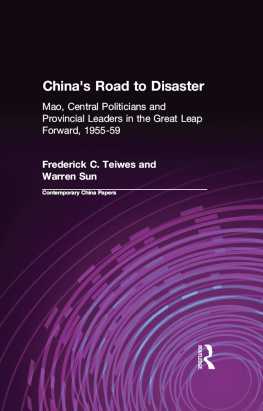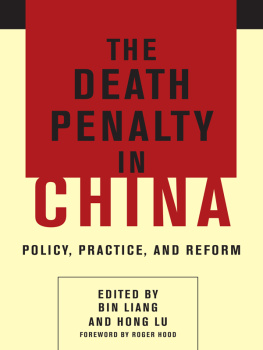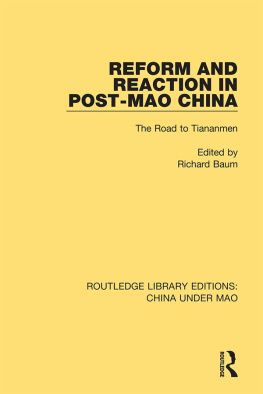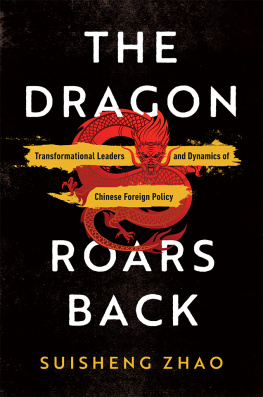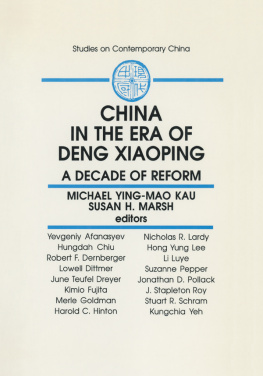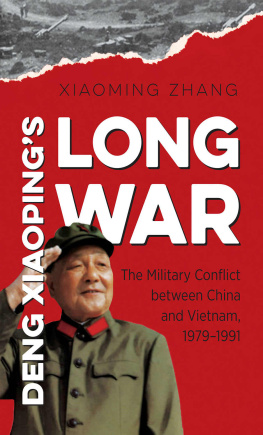Frederick C. Teiwes - Paradoxes of Post-Mao Rural Reform: Initial Steps toward a New Chinese Countryside, 1976-1981
Here you can read online Frederick C. Teiwes - Paradoxes of Post-Mao Rural Reform: Initial Steps toward a New Chinese Countryside, 1976-1981 full text of the book (entire story) in english for free. Download pdf and epub, get meaning, cover and reviews about this ebook. year: 2015, publisher: Taylor & Francis, genre: Politics. Description of the work, (preface) as well as reviews are available. Best literature library LitArk.com created for fans of good reading and offers a wide selection of genres:
Romance novel
Science fiction
Adventure
Detective
Science
History
Home and family
Prose
Art
Politics
Computer
Non-fiction
Religion
Business
Children
Humor
Choose a favorite category and find really read worthwhile books. Enjoy immersion in the world of imagination, feel the emotions of the characters or learn something new for yourself, make an fascinating discovery.

- Book:Paradoxes of Post-Mao Rural Reform: Initial Steps toward a New Chinese Countryside, 1976-1981
- Author:
- Publisher:Taylor & Francis
- Genre:
- Year:2015
- Rating:5 / 5
- Favourites:Add to favourites
- Your mark:
Paradoxes of Post-Mao Rural Reform: Initial Steps toward a New Chinese Countryside, 1976-1981: summary, description and annotation
We offer to read an annotation, description, summary or preface (depends on what the author of the book "Paradoxes of Post-Mao Rural Reform: Initial Steps toward a New Chinese Countryside, 1976-1981" wrote himself). If you haven't found the necessary information about the book — write in the comments, we will try to find it.
The decollectivization of Chinese agriculture in the early post-Mao period is widely recognized as a critical part of the overall reform program. But the political process leading to this outcome is poorly understood. A number of approaches have dominated the existing literature: 1) a power/policy struggle between Hua Guofengs alleged neo-Maoists and Deng Xiaopings reform coalition; 2) the power of the peasants; and 3) the leading role of provincial reformers. The first has no validity, while second and third must be viewed through more complex lenses.
This study provides a new interpretation challenging conventional wisdom. Its key finding is that a game changer emerged in spring 1980 at the time Deng replaced Hua as CCP leader, but the significant change in policy was not a product of any clash between these two leaders. Instead, Deng endorsed Zhao Ziyangs policy initiative that shifted emphasis away from Huas pro-peasant policy of increased resources to the countryside, to a pro-state policy that reduced the rural burden on national coffers. To replace the financial resources, policy measures including household farming were implemented with considerable provincial variations. The major unexpected production increases in 1982 confirmed the arrival of decollectivization as the template on the ground. The dynamics of this policy change has never been adequately explained.
Paradoxes of Post-Mao Rural Reform offers a deep empirical study of critical developments involving politics from the highest levels in Beijing to Chinas villages, and in the process challenges many broader accepted interpretations of the politics of reform. It is essential reading for students and scholars of contemporary Chinese political history.
Frederick C. Teiwes: author's other books
Who wrote Paradoxes of Post-Mao Rural Reform: Initial Steps toward a New Chinese Countryside, 1976-1981? Find out the surname, the name of the author of the book and a list of all author's works by series.

